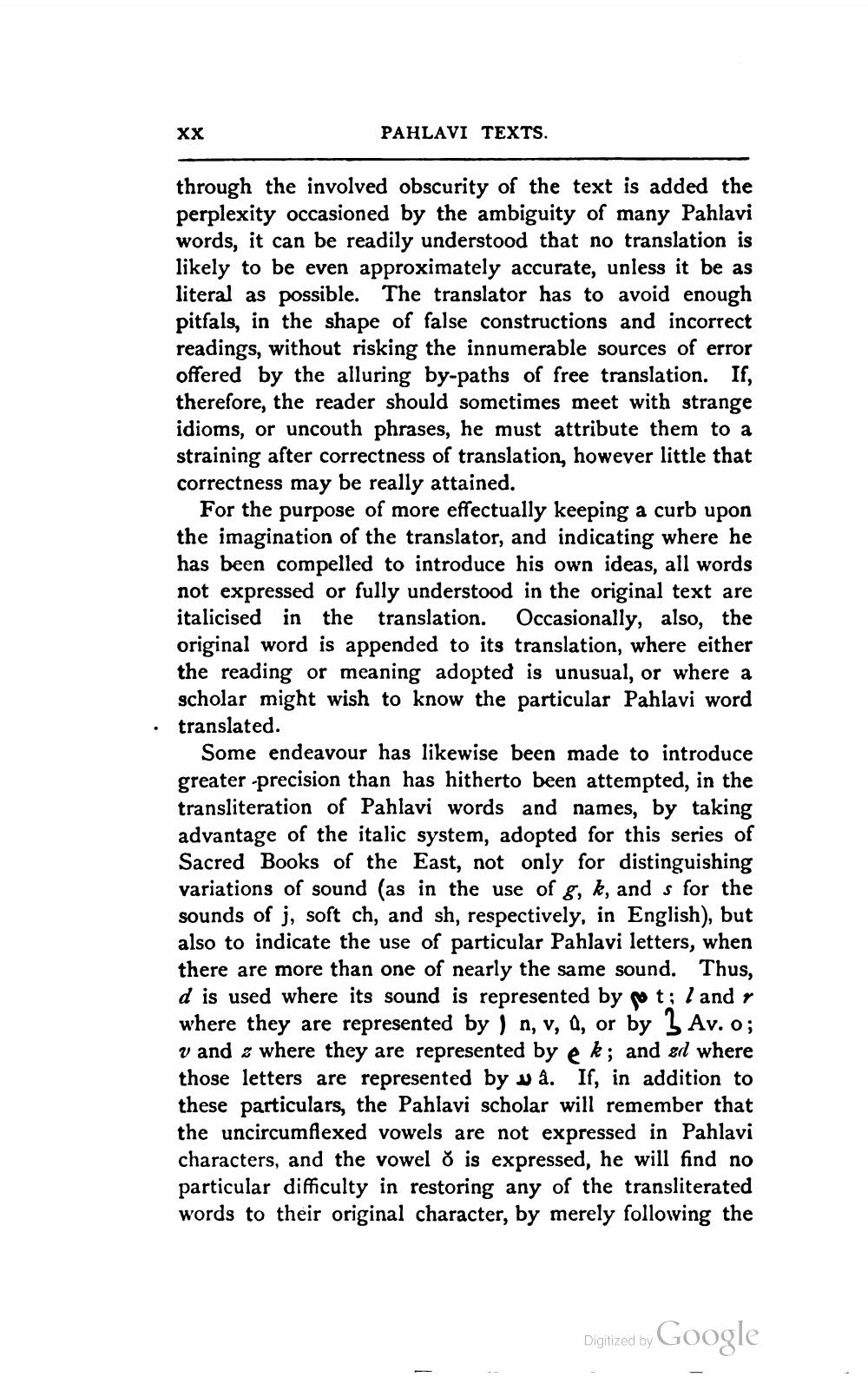________________
xx
PAHLAVI TEXTS.
through the involved obscurity of the text is added the perplexity occasioned by the ambiguity of many Pahlavi words, it can be readily understood that no translation is likely to be even approximately accurate, unless it be as literal as possible. The translator has to avoid enough pitfals, in the shape of false constructions and incorrect readings, without risking the innumerable sources of error offered by the alluring by-paths of free translation. If, therefore, the reader should sometimes meet with strange idioms, or uncouth phrases, he must attribute them to a straining after correctness of translation, however little that correctness may be really attained.
For the purpose of more effectually keeping a curb upon the imagination of the translator, and indicating where he has been compelled to introduce his own ideas, all words not expressed or fully understood in the original text are italicised in the translation. Occasionally, also, the original word is appended to its translation, where either the reading or meaning adopted is unusual, or where a scholar might wish to know the particular Pahlavi word translated.
Some endeavour has likewise been made to introduce greater -precision than has hitherto been attempted, in the transliteration of Pahlavi words and names, by taking advantage of the italic system, adopted for this series of Sacred Books of the East, not only for distinguishing variations of sound (as in the use of g, k, and s for the sounds of j, soft ch, and sh, respectively, in English), but also to indicate the use of particular Pahlavi letters, when there are more than one of nearly the same sound. Thus, d is used where its sound is represented by pt; land , where they are represented by ) n, v, 0, or by 3 Av. o; v and where they are represented by e k; and ad where those letters are represented by w â. If, in addition to these particulars, the Pahlavi scholar will remember that the uncircumflexed vowels are not expressed in Pahlavi characters, and the vowel ŏ is expressed, he will find no particular difficulty in restoring any of the transliterated words to their original character, by merely following the
Digitized by Google




